Search Results
Showing results 121 to 140 of 160
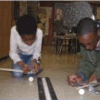
Kick Stick Challenge
Source Institutions
In this design challenge activity, learners investigate series circuits and motors to build a hand-held "kick stick." Their goal is create a battery-operated device that sends a Ping-Pong ball across

Isolation of DNA from Onion
Source Institutions
This laboratory exercise is designed to show learners how DNA can easily be extracted from onion cells. It includes an optional test for the presence of DNA.
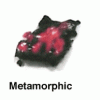
The Crayon Rock Cycle
Source Institutions
In this activity, learners use crayons to draw conclusions about rocks and the rock cycle.
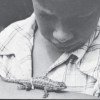
Leapin' Lizards
Source Institutions
In this outdoor activity, learners first explore lizard feeding behavior by creating a "lizard rig" to dangle different objects in front of live lizards and see which objects the lizards try to bite.

Genetics the Easy Way
Source Institutions
In this activity, learners make critters out of recyclables and apply the rules of mathematics to solve genetics problems.
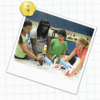
Grab and Go
Source Institutions
In this engineering activity, learners design and build a mechanical arm to lift a small item.

Soccer Kicks
Source Institutions
This activity (on page 2 of the PDF under SciGirls Activity: Soccer Ball Kick) is a full inquiry investigation into transfer of motion.
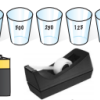
Water Wire: Electricity Flowing Through Water
Source Institutions
In this activity on page 10 of the PDF, learners detect the amount of energy that can flow through a sodium chloride electrolyte solution with a light sensor.
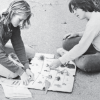
Plant Hunt
Source Institutions
In this outdoor activity and game, learners collect and sort leaf samples to determine how many types of plants grow in the activity site.
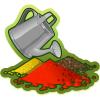
What Trickles Down?
Source Institutions
Learners design their own experiment to explore the permeability of different materials such as soil, sand, gravel, and marbles.
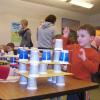
Exploring Structures
Source Institutions
This event guide features three related explorations in which learners investigate the following science concepts: how you design and build a structure helps determine how strong it will be; different

A Hurricane's Storm Surge Affects our Estuaries
Source Institutions
In this activity, learners construct a coastal landmass from sand and add features such as tidal creeks and barrier islands.
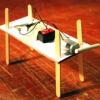
Minibot
Source Institutions
In this activity, learners build a mini dancing robot. This engineering activity introduces learners to electricity, circuits, switches, conductivity, and motors.
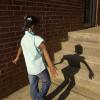
Exploring Shadows
Source Institutions
This activity guide features three related explorations to help learners ages 3-6 investigate shadows via the following science concepts: A shadow is made when an object blocks the light; you can chan
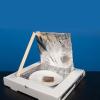
Cook Food Using the Sun
Source Institutions
Learners build a solar oven from a cardboard pizza box, aluminum foil and plastic. Learners can use their oven to cook S'mores or other food in the sun.
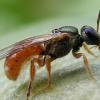
Giant Chromosomes: Fruit Fly DNA and You
Source Institutions
Many of the genetic sequences found in the fruit fly genome are similar to those found in humans.
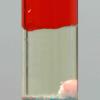
Five-Layer Density Column
Source Institutions
In this activity, learners can create five-layer density columns by employing one of three (or all) methods.

Beginning Statistical Inquiries into the Scientific Method: Jelly-Side-Down
Source Institutions
This activity allows learners to explore the scientific method in an open-ended fashion, using the 4-P Approach to Science Inquiry developed by the University of Wisconsin, Beloit.
Fossil Fuels: Facing the Issues
Source Institutions
Through doing these hands-on activities, learners explore the environmental consequences associated with fossil fuel usage.
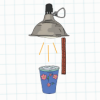
Insulation Station
Source Institutions
In this physical sciences activity, learners explore insulation. Leaners investigate how insulation can be used to slow down the conduction of heat from one side of a wall to the other.
